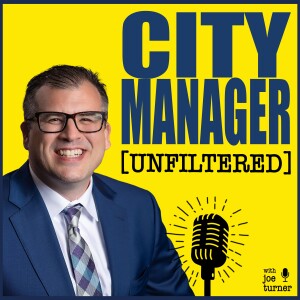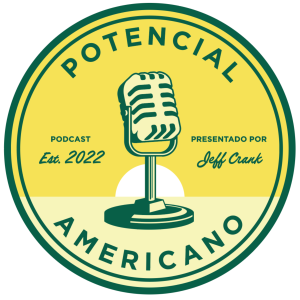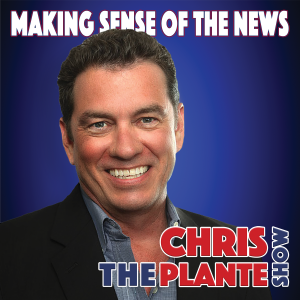Is there a meaningful difference between risk and uncertainty? On the face of it, we might not think so; in casual usage, we could employ the words interchangeably. But some economists see an important distinction between the two. Early in the American experience of the pandemic, economist Allison Schrager wrote an op-ed for The Wall Street Journal called “Risk, Uncertainty and Coronavirus” (paywall). “The novel coronavirus appears at first to be a problem of risk management,” she wrote. “It is a dangerous disease that threatens the lives of our neighbors and loved ones. Our response—increased social distancing, shutting down businesses—is aimed at reducing that risk. But the problem isn’t risk so much as uncertainty.”
She goes on to explain that not long after the 1918 flu pandemic, another economist, Frank Knight, made a distinction between risk and uncertainty. Schrager picks up there:
The future is unknowable, but risk is measurable. It can be estimated using data, provided similar situations have happened before. Uncertainty, on the other hand, deals with outcomes we can’t predict or never saw coming.
Risk can be managed. Uncertainty makes it impossible to weigh costs and benefits, such as whether reducing the spread of a virus is worth the cost of an economic shutdown that could last several months. The most responsible course of action is to assume the worst and take the most risk-averse position. Managing uncertainty is expensive: In markets, it means holding cash; in society, it means shutting down.
Strong Towns president Chuck Marohn says he’s gone back to Schrager’s Wall Street Journal piece, as well as her other writing, numerous times throughout the pandemic. That’s why it’s a special pleasure to welcome her on this week’s episode of the Strong Towns podcast.
Allison Schrager is a senior fellow at the Manhattan Institute, author of the book An Economist Walks into a Brothel: And Other Places to Understand Risk, and cofounder of LifeCycle Finance Partners, LLC, a risk management firm. In this episode, Marohn and Schrager talk about that difference between risk and uncertainty, the tension between efficiency and adaptability, and whether people are geographically sorting during the pandemic based on risk preference. They discuss why meatpackers in Iowa were more prescient about the coronavirus than global finance experts in New York. And they discuss how local communities should be thinking about their own fragility. “The only insurance against uncertainty,” says Schrager, “is resilience.”
Additional Shownotes-
“Risk, Uncertainty and Coronavirus,” by Allison Schrager (paywall)
-
Allison Schrager at the Manhattan Institute
-
An Economist Walks into a Brothel: And Other Places to Understand Risk, by Allison Schrager
-
Allison Schrager (Twitter)
-
Charles Marohn (Twitter)
More Episodes
What to Expect From Strong Towns: the Book
 2019-04-22
2019-04-22
 6.9k
6.9k
Greatest Hits #11: Economic Gardening With Chris Gibbons (2013)
 2019-04-15
2019-04-15
 7.7k
7.7k
Strongest Town Contest: Championship Round
 2019-04-08
2019-04-08
 7.2k
7.2k
Strongest Town Semifinals: Portsmouth, New Hampshire
 2019-04-02
2019-04-02
 6.8k
6.8k
Strongest Town Semifinals: Guthrie, Oklahoma
 2019-04-02
2019-04-02
 6.7k
6.7k
Strongest Town Semifinals: Pensacola, Florida
 2019-04-02
2019-04-02
 6.4k
6.4k
Strongest Town Semifinals: Safety Harbor, Florida
 2019-04-02
2019-04-02
 7.3k
7.3k
Greatest Hits #10: John Dominic Crossan (2013)
 2019-03-27
2019-03-27
 7.3k
7.3k
Greatest Hits #9: Can You Be an Engineer and Speak Out for Reform? (2015)
 2019-03-18
2019-03-18
 7.8k
7.8k
Greatest Hits #8: Gross Negligence (2015)
 2019-03-12
2019-03-12
 7.8k
7.8k
Greatest Hits #7: Talking Debt and Self-Sufficiency With Mr. Money Mustache (2016)
 2019-03-04
2019-03-04
 8.7k
8.7k
Ask Strong Towns #7
 2019-02-28
2019-02-28
 7.2k
7.2k
Greatest Hits #6: Time to End the Routine Traffic Stop (2016)
 2019-02-25
2019-02-25
 7.8k
7.8k
Greatest Hits #5: Approaching a Divided America With Open Eyes (2017)
 2019-02-18
2019-02-18
 8.1k
8.1k
Greatest Hits #4: Lots of Small Earthquakes: How a Place Becomes Antifragile (2015)
 2019-02-04
2019-02-04
 8.5k
8.5k
Ask Strong Towns: Celebrity Edition with Stacy Mitchell
 2019-02-04
2019-02-04
 6.7k
6.7k
Greatest Hits #3: Is a City More Like a Washing Machine or a Cat? (2015)
 2019-01-28
2019-01-28
 8.5k
8.5k
Greatest Hits #2: Steven Shultis on "Bad" Urban Schools (2015)
 2019-01-22
2019-01-22
 8.8k
8.8k
Greatest Hits #1: America Answers Forum on Infrastructure (2015)
 2019-01-14
2019-01-14
 8.3k
8.3k
2019 Update
 2019-01-09
2019-01-09
 6.6k
6.6k
Create your
podcast in
minutes
- Full-featured podcast site
- Unlimited storage and bandwidth
- Comprehensive podcast stats
- Distribute to Apple Podcasts, Spotify, and more
- Make money with your podcast
It is Free
You may also like

City Manager Unfiltered


Potencial Americano


The ASIC Podcast


The Chris Plante Show


Red Eye Radio

- Privacy Policy
- Cookie Policy
- Terms of Use
- Consent Preferences
- Copyright © 2015-2024 Podbean.com


 iOS
iOS Android
Android